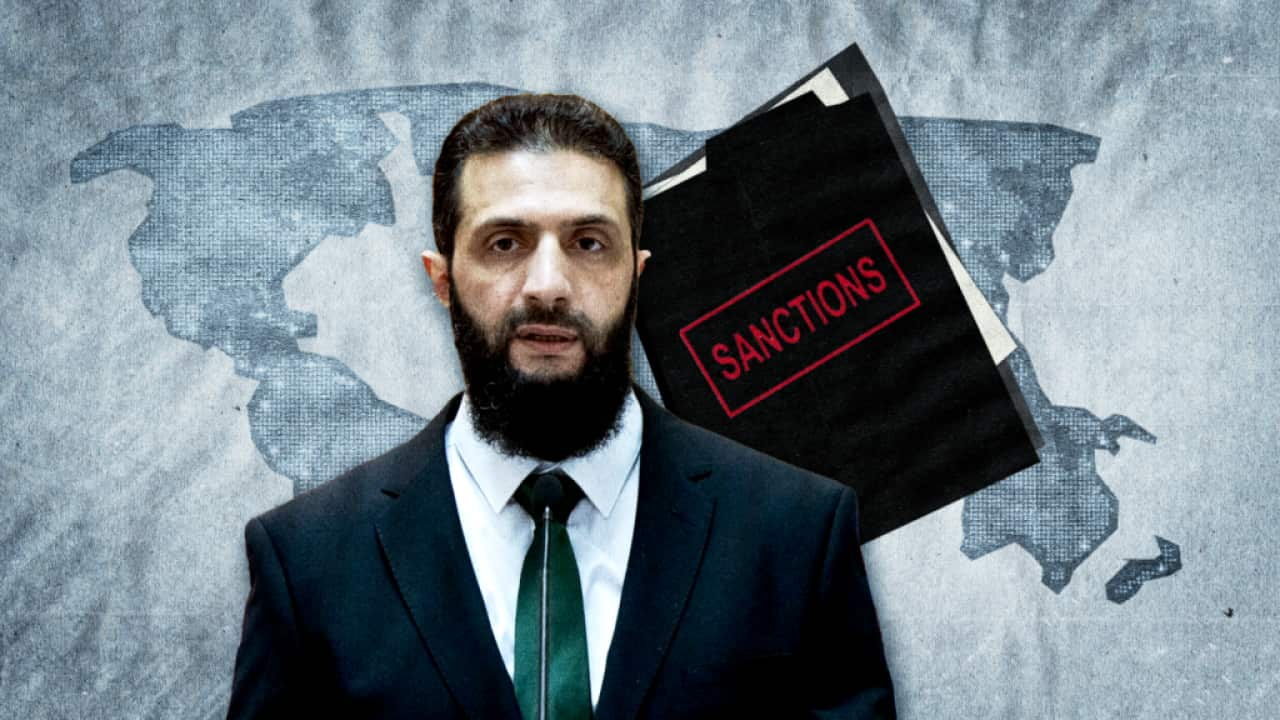Now that the has been toppled, Syria's new leaders have tried to appeal to Western governments to build closer ties and lift harsh sanctions on the country.
Hayat Tahrir al-Sham (HTS), a jihadist alliance led by Al-Qaeda's former Syria branch, , after the rebel group they spearheaded took control of Aleppo.
But Australia, like its United States and Canadian allies, has designated HTS as a terrorist organisation and may not be willing to loosen restrictions despite what experts say is a clear humanitarian case to do so.
Russia and Iran, both major backers of the Assad government, previously provided most of Syria's wheat and oil products, but both have stopped doing so after the rebels triumphed and Assad fled to Moscow.
Syria's trade minister, Maher Khalil al-Hasan, has said the country is unable to make deals to import fuel, wheat or other key goods due to strict sanctions — despite many countries wanting to do so.
This week, the US issued a sanctions exemption, known as a general licence, for transactions with governing institutions in Syria for six months in an effort to ease the flow of humanitarian assistance and allow some energy transactions.
But will the Australian government follow suit, and what factors will it need to consider regarding its role in the Middle East?
Sanctions on Syria
Australia, alongside the US, the United Kingdom and the European Union (EU), imposed tough sanctions on Syria following Assad's crackdown on pro-democracy protests in 2011, which escalated into civil war.
France's foreign minister has indicated the EU may consider lifting some of these restrictions to ensure a smooth transition of power in Syria.
According to Australia's Department of Foreign Affairs and Trade, Australia has enforced autonomous sanctions since 2011 in response to the Assad regime's "deeply disturbing and unacceptable use of violence against its people".
These sanctions prohibit the direct or indirect supply, sale, or transfer of arms and technology related to energy power plants to Syria and also make it illegal to import certain fuel and oil products, among other trade restrictions.
Several persons are also sanctioned, meaning it is prohibited to directly or indirectly make an asset available to them.
Ali Mamouri, a research fellow at Deakin University who specialises in Middle East studies, said if the US lifts further sanctions, Australia will almost certainly follow.
He described the US' most recent move as a significant one that sends signals it could be willing to cooperate with Syria.
"Most likely, this is one of the last moves President Joe Biden wants to make for his administration and to make some kind of legacy for the Democrat administration, especially after the big defeat of the elections," Mamouri said.
Amin Saikal, an emeritus professor at the Australian National University, is a specialist in Middle Eastern international relations.
He said if Australia decides to lift sanctions, it won't have much impact on Syria, as Australia has never had a major trade relationship with the country or been a significant player in the region.
Syria is one of the most sanctioned countries in the world and, after 13 years of conflict, is in a "devastated state", he said.
Crisis Group warns against repeating Afghanistan 'mistakes' in Syria
The think tank Crisis Group wrote in Foreign Policy magazine: "Outside actors seem poised to repeat many of the same mistakes they made in Afghanistan after the Taliban's takeover".
Western governments "left in place economic punishments that had no moderating effect on the Taliban but [instead] … dealt a blow to the [Taliban's] pragmatic wing, empowering hard-liners during the regime's precarious first months".
However, Mamouri argues comparisons to Afghanistan are not applicable, as Syrian society is fundamentally different.
What can foreign governments expect after Assad?
, also known as Abu Mohammed al-Jolani, who leads HTS, has promised elections will be held within four years — .
He's vowed to dissolve armed groups and says the future government will include minorities such as Kurds, Christians, Druze, and Alawites.
HTS is faced with the immediate task of repairing a crippled economy, with the government having inherited all the sanctions of the Assad family regime, which held power over the country for nearly 54 years.
Syria's new leader is playing down his extremist past, Saikal said.
"He's basically said, 'We're not the Taliban, we're not going to deprive any group of rights,'" he said.
"But at the same time, they have emphasised that Islam is going to be the religion of state and therefore no law of that state would be a contradiction to the principles of Islam."
Given the new government is comprised of former members of Al-Qaeda and the self-proclaimed Islamic State (IS) group, international governments are still waiting to see how the situation evolves, Saikal said.
"There is a great deal of uncertainty whether this group will remain a more moderate and reformist entity or it's likely to revert back, or at least elements in the leadership will revert back to more radical Islamism."
Mamouri said there are some "vague ... and very concerning aspects" of the new government, and some members are "showing strong extremist tendencies".
"They try to rebrand themselves and they're showing positive development in their statement and in their conduct. But it still is too early to make sure that they will go toward democratic and civil government."
Syrian activists and rights groups recently called for the new justice minister to be investigated or sacked after old footage resurfaced linking him to the executions of two women nearly a decade ago.
— With additional reporting by the Reuters news agency.











